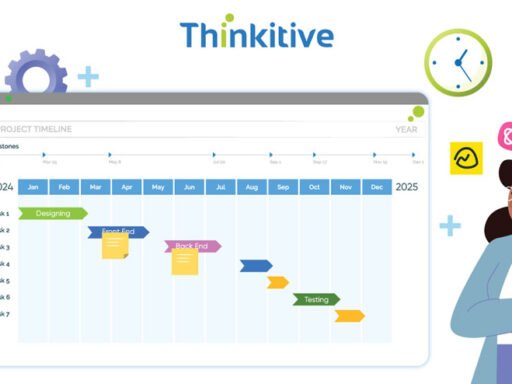When done optimally, rental property management can be a powerful source of passive income. In other words, it will be able to generate income on your behalf, despite minimal work and effort on your part.
Hypothetically, you should be able to collect rent every month in excess of what you pay in ongoing expenses, resulting in a consistent net profit that you can then use to invest in other properties or other assets.
However, the reality is a bit more complicated. If you want to consistently generate net income from your properties, you need to actively manage them and keep them occupied.
One of your best strategies in this endeavor is to improve tenant retention. But why is this such an important focal point for property managers?
What Is Tenant Retention?
Tenant retention essentially means keeping the tenants you have, rather than allowing vacancies to occur. There are several strategies that can help you retain your tenants, but most of them focus on finding the right tenants and keeping them for as long as possible.
Optimizing for Tenant Retention
There are some things that are beyond your control. If your tenant gets a new job, undergoes a divorce, or experiences another life change, they may move regardless of what you do. But these strategies can help you maximize tenant retention to the best of your ability:
- Property condition. One of the most important factors in retaining tenants is maintaining a good property. The more functional, the more attractive, and the more reliable your property is, the less likely your tenants will be to leave. Make periodic upgrades and practice routine maintenance to ensure a hospitable living environment.
- Tenant screening. Before bringing on a new tenant, screen them thoroughly to make sure they’re a good fit for this property. Check to make sure they have adequate income and can afford this in the long term. You should also ask for references – and check them. Don’t be afraid to filter out people who aren’t a good fit; an extra few weeks of vacancy are worth it to find the right candidate.
- Fair pricing. Obviously, you need to make money, but you also need to exercise restraint in the rent you charge. If you charge too much money, or if you consistently increase rent in egregious ways, you’re going to push your tenants out.
- Communication. Good communication can go a long way in preventing and resolving disputes, as well as encouraging tenants to stick around. Check-in with your tenants regularly and establish rapport with them. You don’t need to be best friends with your tenants, nor should you be, but it pays to be on good, friendly terms.
- Issue resolution. Whenever there are issues, work quickly and decisively to alleviate them. That means responding to urgent repair requests expeditiously as well as collaborating and negotiating when there’s a difference of opinion. Conflicts will inevitably arise between you and your tenants, so be prepared to resolve them.
- Appreciation. Finally, consider showing appreciation for your tenants and giving them as much wiggle room as you can afford. For example, you can waive late payment fees for occasional late payments and send your tenants a holiday card when appropriate to do so. Even small gestures can make a big impact.
The Value of Tenant Retention
Why is tenant retention so disproportionately valuable in your property management strategy?
- No vacancies. The higher your rate of tenant retention, the fewer and shorter vacancies you’re going to have. Vacancies are incredibly destructive in rental property management, as they cost you a lot of money without generating income.
- Consistency/predictability. Maintaining tenants also gives you greater consistency and predictability in your rental property management strategy. You can practice superior financial forecasting and benefit from increased familiarity with your tenants.
- Fewer marketing campaigns. Marketing campaigns are expensive, and they can be a pain to manage. If your property remains occupied, you can avoid the necessity of marketing it to prospective new tenants.
- Smoother issue resolution. Many strategies that support tenant retention also accelerate conflict resolution. If you keep the property in good condition, there will be fewer conflicts. If you maintain good rapport with your tenant, you’ll be able to communicate and work out issues faster.
- Reputation. Keeping tenants for a long time is also good for your reputation. Your tenants will be happier and more likely to recommend you to friends and family members, and outside observers will notice that you have a good track record with your existing tenants.
If you want to be successful in managing rental properties, you need to prioritize tenant retention. There are many strategies that can help you do it, but there are no substitutes, so make sure it’s at or near the top of your list of objectives.





